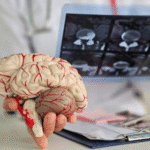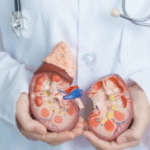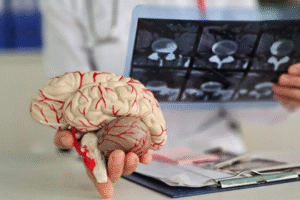A respiratory medicine appointment is crucial for diagnosing and treating various respiratory conditions. This guide will help you understand what to expect, how to prepare, and the importance of these appointments.
1. What is a Respiratory Medicine Appointment?
A respiratory medicine appointment involves a visit to a specialist who focuses on diagnosing and treating lung and respiratory system disorders. These appointments are vital for managing conditions like asthma, COPD, and lung infections.
2. Importance of Respiratory Medicine Appointments
Regular respiratory medicine appointments ensure that respiratory conditions are diagnosed early and managed effectively. This helps in preventing complications and maintaining overall lung health.
3. How to Prepare for Your Appointment
Preparing for your respiratory medicine appointment includes listing your symptoms, noting any triggers, and bringing previous medical records. This information helps your doctor make an accurate diagnosis.
4. Common Reasons for Referral
You might be referred to a respiratory medicine specialist for persistent cough, shortness of breath, chest pain, or abnormal lung function tests. These symptoms require expert evaluation and treatment.
5. Initial Consultation
During your first appointment, the specialist will review your medical history, ask about your symptoms, and perform a physical examination. This helps in forming a preliminary diagnosis.
6. Diagnostic Tests
Common diagnostic tests during a respiratory medicine appointment include chest X-rays, CT scans, and pulmonary function tests. These tests provide detailed information about lung health.
7. Pulmonary Function Tests
Pulmonary function tests measure how well your lungs are working. They can help diagnose conditions like asthma, COPD, and other lung diseases by assessing lung capacity and airflow.
8. Imaging Studies
Imaging studies like chest X-rays and CT scans provide visual details of the lungs and help identify abnormalities such as infections, tumors, or structural issues.
9. Blood Tests
Blood tests may be conducted to check for infections, inflammation, and other markers that could indicate a respiratory condition. These tests help in forming a comprehensive diagnosis.
10. Allergy Testing
If allergies are suspected to be a trigger for respiratory issues, allergy testing may be recommended. Identifying allergens can help in managing and preventing symptoms.
11. Discussing Symptoms
Openly discussing your symptoms, their severity, and any triggers with your doctor is crucial. This helps in tailoring a treatment plan that addresses your specific needs.
12. Treatment Options
Treatment options discussed during a respiratory medicine appointment can include medications, inhalers, lifestyle changes, and, in some cases, surgical interventions.
13. Medication Management
Your doctor will review your current medications and may prescribe new ones or adjust dosages to better manage your condition. Understanding your medications is key to effective treatment.
14. Inhaler Techniques
Proper inhaler technique is essential for effective medication delivery. Your doctor will demonstrate how to use inhalers correctly and ensure you are comfortable with the process.
15. Lifestyle Modifications
Lifestyle modifications such as quitting smoking, exercising regularly, and maintaining a healthy diet can significantly improve respiratory health. Your doctor will provide personalized recommendations.
16. Breathing Exercises
Breathing exercises can help strengthen the respiratory muscles and improve lung function. Techniques such as diaphragmatic breathing and pursed-lip breathing may be taught during your appointment.
17. Monitoring Progress
Regular follow-up appointments are necessary to monitor your progress and make any necessary adjustments to your treatment plan. Consistent monitoring helps in managing chronic conditions effectively.
18. Managing Chronic Conditions
For chronic conditions like asthma and COPD, ongoing management is crucial. Your doctor will provide a long-term care plan to keep symptoms under control and improve quality of life.
19. Emergency Action Plan
Having an emergency action plan in place is important for managing sudden exacerbations of respiratory conditions. Your doctor will help you create a plan tailored to your needs.
20. Importance of Adherence
Adhering to your prescribed treatment plan is essential for effective management of respiratory conditions. Your doctor will emphasize the importance of following their recommendations closely.
21. Patient Education
Patient education is a key component of a respiratory medicine appointment. Understanding your condition, treatment options, and lifestyle modifications empowers you to take control of your health.
22. Support Systems
Having a support system, such as family, friends, or support groups, can provide emotional and practical assistance in managing respiratory conditions. Your doctor may suggest resources for support.
23. Mental Health Considerations
Living with a respiratory condition can impact mental health. Discussing any feelings of anxiety or depression with your doctor is important for comprehensive care.
24. Technological Advancements
Advancements in respiratory medicine, such as new medications and innovative treatments, are continually emerging. Your doctor will keep you informed about the latest options available.
25. The Road Ahead
Understanding what to expect during a respiratory medicine appointment helps you take an active role in your healthcare. Regular appointments, adherence to treatment plans, and lifestyle modifications can lead to better respiratory health and an improved quality of life.














